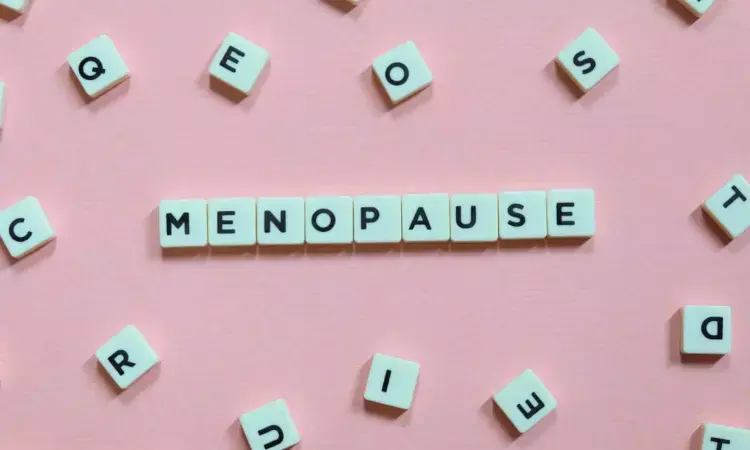- Home
- Medical news & Guidelines
- Anesthesiology
- Cardiology and CTVS
- Critical Care
- Dentistry
- Dermatology
- Diabetes and Endocrinology
- ENT
- Gastroenterology
- Medicine
- Nephrology
- Neurology
- Obstretics-Gynaecology
- Oncology
- Ophthalmology
- Orthopaedics
- Pediatrics-Neonatology
- Psychiatry
- Pulmonology
- Radiology
- Surgery
- Urology
- Laboratory Medicine
- Diet
- Nursing
- Paramedical
- Physiotherapy
- Health news
- Fact Check
- Bone Health Fact Check
- Brain Health Fact Check
- Cancer Related Fact Check
- Child Care Fact Check
- Dental and oral health fact check
- Diabetes and metabolic health fact check
- Diet and Nutrition Fact Check
- Eye and ENT Care Fact Check
- Fitness fact check
- Gut health fact check
- Heart health fact check
- Kidney health fact check
- Medical education fact check
- Men's health fact check
- Respiratory fact check
- Skin and hair care fact check
- Vaccine and Immunization fact check
- Women's health fact check
- AYUSH
- State News
- Andaman and Nicobar Islands
- Andhra Pradesh
- Arunachal Pradesh
- Assam
- Bihar
- Chandigarh
- Chattisgarh
- Dadra and Nagar Haveli
- Daman and Diu
- Delhi
- Goa
- Gujarat
- Haryana
- Himachal Pradesh
- Jammu & Kashmir
- Jharkhand
- Karnataka
- Kerala
- Ladakh
- Lakshadweep
- Madhya Pradesh
- Maharashtra
- Manipur
- Meghalaya
- Mizoram
- Nagaland
- Odisha
- Puducherry
- Punjab
- Rajasthan
- Sikkim
- Tamil Nadu
- Telangana
- Tripura
- Uttar Pradesh
- Uttrakhand
- West Bengal
- Medical Education
- Industry
Combination of therapeutic touch and music key to better night's sleep during menopause

If you're sleep deprived because of transitioning through menopause, there are probably few things you wouldn't try to get a good night's sleep. A new study, however, suggests better sleep could be as easy to achieve as listening to music and receiving therapeutic touch. Results of a survey are published online today in Menopause, the journal of The Menopause Society.
Sleep disturbances are, unfortunately, common during menopause, with roughly 40% to 60% of menopausal women complaining of sleep problems. These problems include difficulty getting to sleep or staying asleep. Other common complaints of women going through menopause are hot flashes, night sweats, palpitations, weight gain, fatigue, and irritability.
In recent years, more women have turned to complementary and alternative medicine (CAM) to help manage these common menopause symptoms, even though there are pharmacologic solutions (hormone and nonhormone) on the market that have proven effective in reducing these types of problems. Common CAM methods include yoga, biofeedback, relaxation techniques, reflexology, acupressure, hypnosis, therapeutic touch, music, cognitive-behavioral therapy, mindfulness-based stress reduction, aromatherapy, and herbal products.
One CAM method growing in popularity in recent years is therapeutic touch, which is a noninvasive nursing intervention that directs life energy to patients and balances it, reportedly increasing the flow of energy, removing blockages, and creating an environment that promotes the acceleration of the natural healing process to alleviate ailments or symptoms caused by imbalances and blockages in life energy fields.
Music, another common CAM method, has been used as a healing tool throughout history. Pleasant music perceived by the right hemisphere of the brain stimulates the release of endorphins from the pituitary gland and lowers the heart rate, catecholamine levels, respiratory rate, and blood pressure. In addition, music diverts the attention of persons from negative stimuli to pleasant vibrations emitted by music. This reduces the person's pain, anxiety, sadness, and stress and changes the perception of pain.
In a new study involving more than 100 menopausal women, researchers sought to examine the effects of therapeutic touch and music on sleep quality, menopause symptoms, and overall quality of life in perimenopausal and postmenopausal women.
After four weeks of intervention, the researchers confirmed that therapeutic touch and music significantly affected sleep quality (in terms of subjective sleep quality, sleep latency, and sleep disturbances) in women and significantly improved menopause symptoms and menopause-specific quality of life.
Study results are published in the article “The effects of therapeutic touch and music on sleep quality, menopause symptoms, and quality of life in menopausal women.”
“This small study highlights some potential benefit of music and therapeutic touch for menopause symptoms. Although these therapies may be cost effective and safe, additional study in larger numbers of women is needed to confirm their efficacy for menopause symptom management. Further, hormone therapy remains the most effective treatment for menopause symptoms, and for most women aged younger than 60 years and within 10 years of menopause onset, the benefits outweigh the risks,” says Dr. Stephanie Faubion, medical director for The Menopause Society.
Reference:
Keskin Töre, Fatma PhD1; Yağmur, Yurdagül PhD2. The effects of therapeutic touch and music on sleep quality, menopausal symptoms, and quality of life in menopausal women. Menopause ():10.1097/GME.0000000000002269, October 24, 2023. | DOI: 10.1097/GME.0000000000002269.
Dr Kamal Kant Kohli-MBBS, DTCD- a chest specialist with more than 30 years of practice and a flair for writing clinical articles, Dr Kamal Kant Kohli joined Medical Dialogues as a Chief Editor of Medical News. Besides writing articles, as an editor, he proofreads and verifies all the medical content published on Medical Dialogues including those coming from journals, studies,medical conferences,guidelines etc. Email: drkohli@medicaldialogues.in. Contact no. 011-43720751


